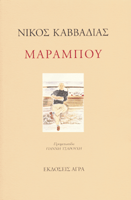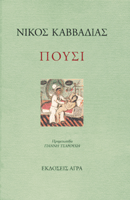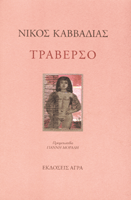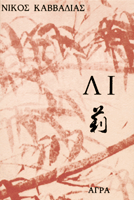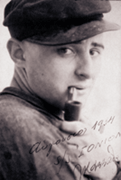 |
|
|
|
Nikos Kavvadias was born in 1910 in a small town in Manchuria close to Harbin, to Greek parents from the island of Cephalonia. When he was still a small child, his family returned to Greece. They remained for some years in Cephalonia, and then, from 1921 to 1932, moved to Piraeus, where Kavvadias completed his schooling. It was while at school that he wrote his first poems. In 1921 he began working in a shipping office and a few months later took to see on a cargo ship. For a number of years he continued working at sea, eventually returning home penniless and exhausted. He then began training to become a qualified radio operator. He had originally wanted to become a ship's master but he had already spent too long at sea to start this long career path. He was awarded his radio operator's diploma in 1939. But then the war intervened to and he had to join the Greek forces on the Albanian front. Subsequently he was stuck in Athens during the years of the Nazi occupation. He eventually went back to sea in 1944. He stayed in this job until he retired in 1974. He died three months later from a stroke, on 10 February 1975. The Shift is Kavvadias only novel. His collections of poetry - Marabou (1933), Fog (1947) and Traverso (1975) - and his short stories - Li, Of War and On My Horse (1987) - are all published by Agra. |
|
|
| Frontispiece for Kavvadias' Traverso by the artist Yannis
Moralis. (Agra Publications, 1989) |

